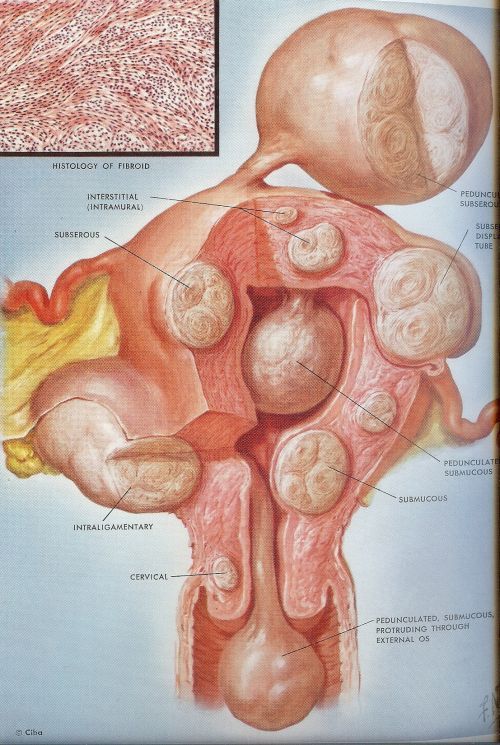Understanding Fibroids Symptoms: Signs Of Uterine Fibroid Growth
Welcome to our informative piece about uterine fibroids! This is an important topic that affects millions of women around the world.
Understanding Uterine Fibroids
Uterine fibroids are benign tumors that grow on or in the wall of the uterus. They are also called myomas or leiomyomas. These tumors are usually not cancerous, but they can cause discomfort and pain, particularly during menstruation.

What Are the Types, Causes, and Symptoms of Fibroids?
There are three main types of uterine fibroids: subserosal fibroids, intramural fibroids, and submucosal fibroids. The causes of fibroids are not fully understood, but they are thought to be related to changes in hormone levels.
The symptoms of uterine fibroids can vary depending on their location and size, but they can include heavy or prolonged periods, pelvic pain or pressure, frequent urination, and difficulty emptying the bladder. Fibroids can also cause infertility or complications during pregnancy.

The Importance of Timely Diagnosis and Treatment
If you suspect that you have uterine fibroids, it's important to seek medical attention as soon as possible. Early diagnosis and treatment can help prevent complications, such as anemia, infertility, and premature labor.
There are several diagnostic tests that can be used to identify uterine fibroids, including pelvic exams, ultrasounds, and MRIs. Treatment options may include medication, surgery, or non-invasive procedures, such as uterine fibroid embolization.

Statistics on Uterine Fibroids
Uterine fibroids are incredibly common, affecting up to 80% of women by the age of 50. They are most commonly diagnosed in women in their 40s and early 50s, but they can occur at any age.
While uterine fibroids are usually not a cause for alarm, they can cause discomfort and pain. In rare cases, they can also become cancerous. Therefore, it's important to stay aware of the symptoms and seek medical attention if you suspect that you have fibroids.

Risk Factors for Uterine Fibroids
While the causes of uterine fibroids are not fully understood, there are certain risk factors that may increase your likelihood of developing them. These risk factors include:
- A family history of fibroids
- Being African American
- Being overweight or obese
- Having high blood pressure
- Having a vitamin D deficiency
While you can't control all of these risk factors, staying healthy and maintaining a healthy weight can help reduce your risk of developing fibroids.
Recognizing Early Symptoms of Fibroids
Recognizing the early symptoms of uterine fibroids is key to getting the treatment you need. Some of the most common symptoms of fibroids include:
- Heavy or prolonged periods
- Pelvic pain or pressure
- Frequent urination
- Bloating or constipation
If you suspect that you have uterine fibroids, it's important to seek medical attention as soon as possible. Early diagnosis and treatment can help prevent complications and improve your quality of life.
Diagnostic Tests for Uterine Fibroids
If your doctor suspects that you have uterine fibroids, there are several diagnostic tests that can be used to identify them. These tests may include:
- Pelvic exam
- Ultrasound
- MRI
- Hysteroscopy
Based on the results of these tests, your doctor will be able to determine the best treatment options for you.
Awareness and Prevention of Uterine Fibroids
While you can't always prevent uterine fibroids, staying aware of the symptoms and risk factors can help you take steps to reduce your risk and seek treatment if necessary.
Eating a healthy diet, staying active, and maintaining a healthy weight can all help reduce your risk of developing uterine fibroids. Additionally, getting regular checkups and staying up-to-date on routine screenings can help ensure that any potential issues are caught early.
Early Detection and Timely Treatment
If you suspect that you have uterine fibroids, it's important to seek medical attention as soon as possible. Early detection and timely treatment can help prevent complications and improve your quality of life.
In some cases, uterine fibroids can be managed with medication or non-invasive procedures. However, if your fibroids are causing significant discomfort or complications, surgery may be necessary. Your doctor will be able to determine the best course of treatment for your individual needs.
Support and Resources for Women with Uterine Fibroids
If you have been diagnosed with uterine fibroids, it's important to know that you are not alone. There are many resources available to help you manage your symptoms and get the support you need.
Organizations like the Fibroid Foundation and the National Uterine Fibroids Foundation offer educational resources, support groups, and advocacy efforts to help raise awareness and improve the lives of women with fibroids.

We hope that this article has been helpful in understanding uterine fibroids and the importance of timely diagnosis and treatment. If you have any concerns or questions about your own health, please consult with your doctor or a qualified healthcare professional.
Komentar
Posting Komentar